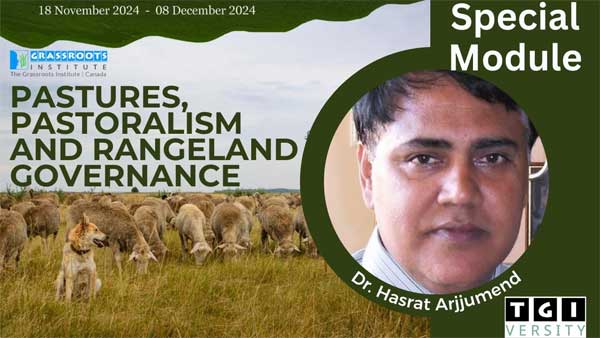SPECIAL MODULE: CASE STUDY OR PROJECT WORK
[3 weeks from 9 December 2024 to 31 August 2025; Study Time: 90 Hours]
*This module is compulsory for receiving Advanced Certificate. To obtain ordinary Certificate, this module is not necessary and completion of Module 1 to 3 is enough.
S-1: Guidelines & Instructions
Upon completion of three Modules of the course, each student is required to choose a topic of his/her choice to conduct a case study research. This case study research should concentrate a problem of student’s own country or region. Following steps should be adopted by each student:
Step 1: Choosing a Problem for Case Study Research
- The case study research topic should address local problems of the student’s country or region.
- The case study research should not be based on reviewing a existing literature. However, writing a short review of literature in the report will be allowed.
- The field work and field data collection should be conducted in some specific community.
- Problem identified should be a real problem, and should not be hypothetical.
- The cases study should address narrower problem, i.e. a micro level problem.
Step 2: Communicate the Topic of Case Study Research
Each student interested in Special Module is required to communicate his/her topic before or by 31 July 2025. This topic can be communicated using email mail@grassrootsinstitute.ca . While communicating the topic, each student should send 1) Country, 2) Name, and 3) Topic. Upon receiving this information, we will enter the data in a table on this page.
Step 3: Read the Case Study Research Guidelines
Step 4: Prepare Case Study Research Instrument
After reading certain guidelines and other methodological literature, each student should prepare own instrument containing sampling, sampling techniques, methods, tools, questionnaire, etc. Using this instrument, the student will conduct the primary original research.
Step 5: Conducting the Field Research for Case Study Writing
Based on the case study research instrument, each student should carry out the field data collection.
Step 6: Writing the Case Study Report
Inculcating the field data and analysis, student should write the case study in minimum 21 pages (10000 words) and maximum 21000 words or 45 pages (A4 pages). Font “Times New Roman” or “Arial” can be used with 12 point size. Photos may be inserted, but each photo needs name of the photographer. All the students must take note that “Plagiarism” and “AI-written text” will not be tolerated. It should be a primary original work.
S-2: Livestream Zoom Session with Course Director & Instructors
Topic: Doubts Clarifications
Date: 9 December 2024
Time: 2 pm Central European Time
Zoom Link: 830 7519 9676
Recorded Video: https://youtu.be/H8ilf2ZpfsU
S-3: Mid-Term Reporting (before or by 31 May 2025); Final Submission (before or by 31 August 2025)
Using Forum P-001 or email mail@grassrootsinstitute.ca, each student will report the mid-term progress of his/her field case study research.
Final submission of the case study report should be done in MS Word. PDF copy of the document will not be accepted. The report will be sent by email lead@grassrootsinstitute.ca .
CASE STUDY RESEARCH PROGRESS CHART
| Country | Name of Student | Topic of Case Study Research | Mid-Term Report | Final Submission Date |
| Portugal | Sérgio António Neves Lousada | Pastoralism and Land-Use Challenges in Madeira Island, Portugal | ||
| Kenya | Dr. Armara M Galwab | Local solutions to resource-based conflict management strategies in Marsabit County, Kenya | ||
| Sudan | Adam Ahmed Bakheit | Increase in agriculture extending and impact of livestock mobility in Adila locality | ||
| Kenya | Jane Karimi Kinoti | Community Led invasive species management in Kajiado County | ||
| Uganda | Lokwar Isaac and Lolek Joseph | Environmental impacts of mining activities on pastoral communities (Karimojong) | ||
| Uganda | Lokiru Moses Sylvester | The Pastoral Road to Extinction in South Karamoja Region: Case Study Between Uganda Wildlife Authority in Pian-Upe Game Reserve and Pian Herders in Nakapiripirit District, Uganda | ||
| Kyrgyzstan | Gulnura Zhumabai kyzy | Human-Wildlife conflict in Ak-Suu district, Issyk-Kul, Kyrgyzstan | ||
| Albania | Petrit Dobi | Living Heritage: Traditional Pastoral Practices and Cultural Identity in Albania | ||
| Benin | Julia van Stenis | The Paradox of Settling Those Who Never Fully Left: Rethinking Land, Identity, and Sedentarisation among Agro-Pastoralists in Northern Benin | ||
| Albania | Martine Wolff | Governing through Ontological Perspectives within Transhumant Pastoralism in Kelmend, Northern Albania | ||
*Only in exceptional situations, a student can be allowed to conduct a Project Work in place of a Case Study Research. Those having a genuine problem, please contact at lead@grassrootsinstitute.ca
**Two students can propose one topic of case study research or project work, if they are going to work jointly. Both of them should report their topic jointly.
***In special problems or issues, you may contact us at: mail@grassrootsinstitute.ca






